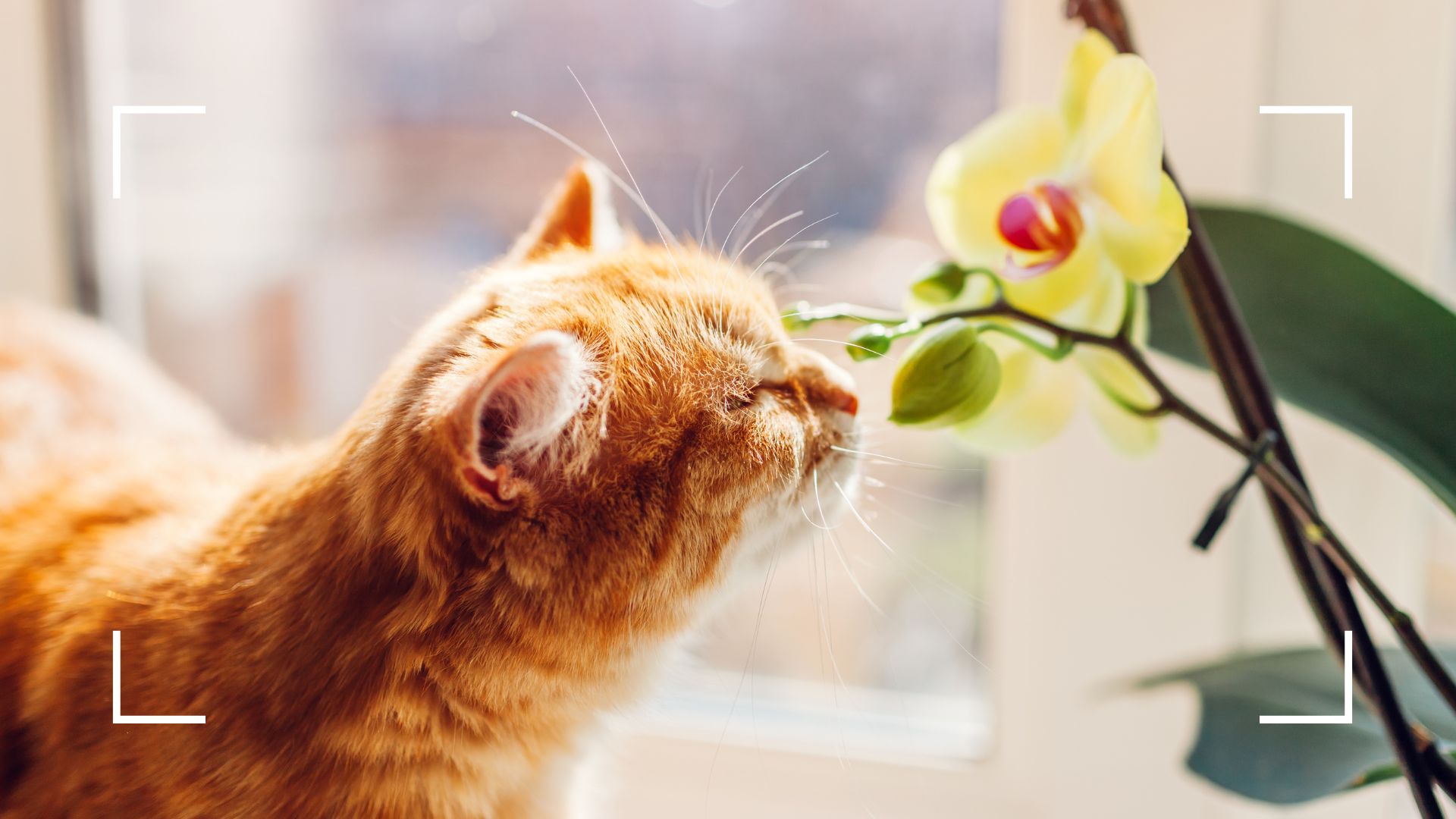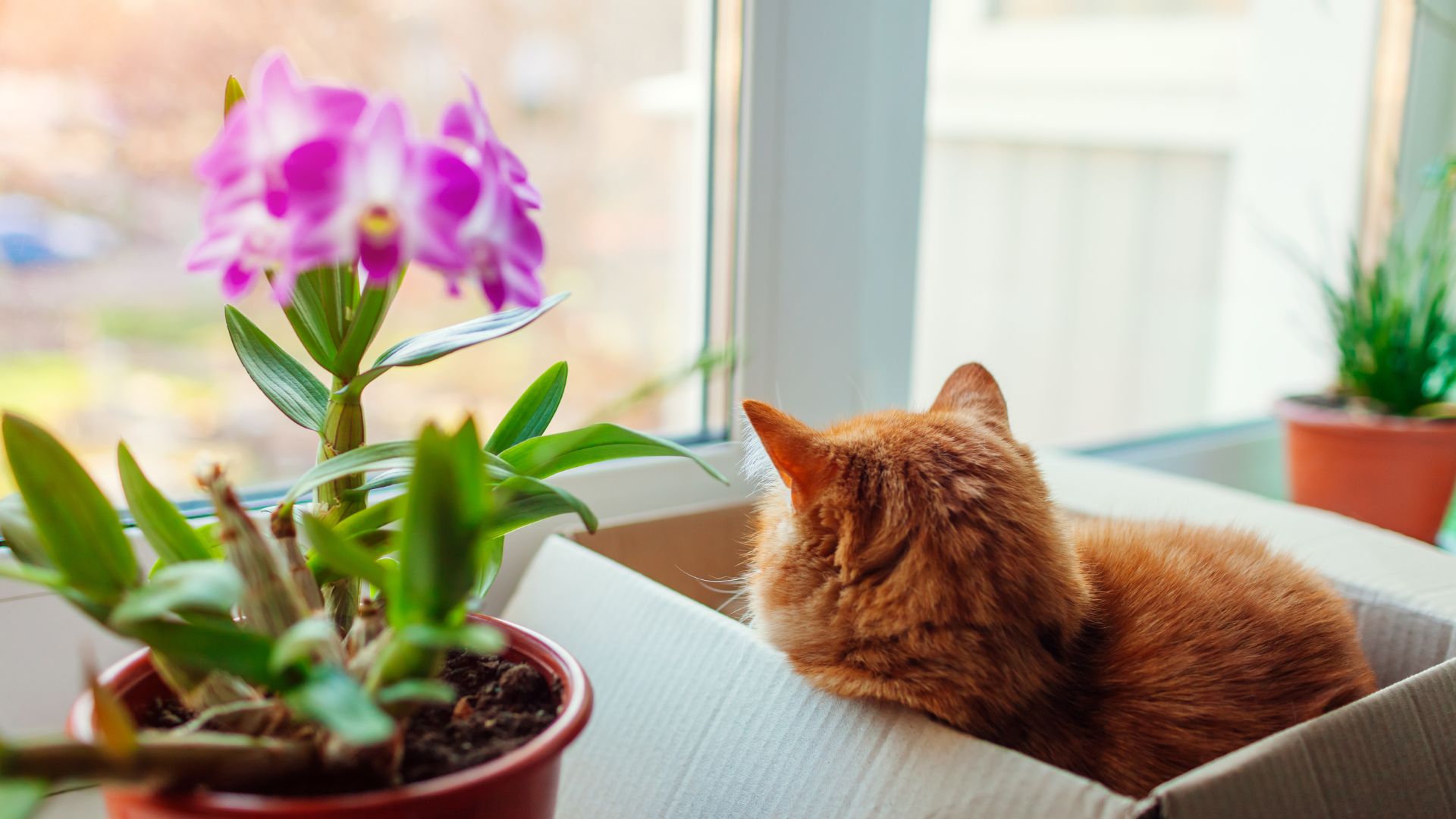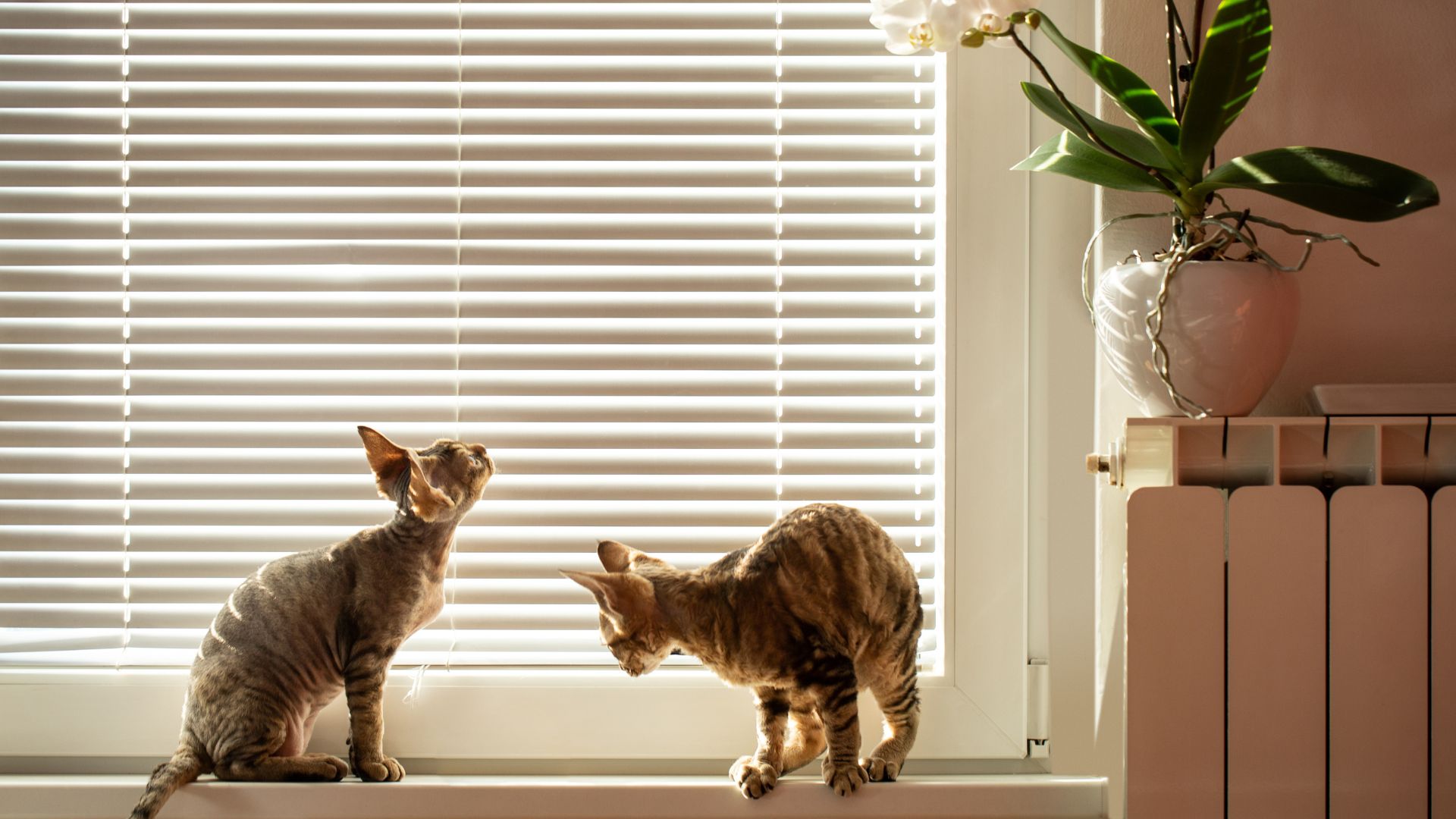
Whilst your cat might not seem interested in your plants, taking extra caution with what greenery you have around your furry friend is always the best course of action.
Many houseplants are toxic to cats but there are a few exceptions that you can keep around your feline family members, so whether you're collecting fragrant plants to make your house smell good or plants that help with condensation it's important to check whether they can pose a threat.
When it comes to orchids it's not quite a black-and-white answer, hence why we have spoken to both vets and plant experts to reveal if this plant is a green or red light for your home.
Are orchid plants poisonous to cats?
Knowing how to care for an orchid can be a near-impossible task, so much so you've probably already kept it out of harm's way. Especially far away from mischievous little paws. However, when it comes to the plant causing harm to your cat, the risk is slightly less.
"Orchids aren’t highly toxic to cats but they can still cause stomach upset and other gastrointestinal issues if a cat ingests any part of the flower," says Igor Podyablonskiy, flower and plant expert at My Flowers. "This is because orchid leaves, stems and flowers contain compounds that can irritate the digestive system when ingested in large quantities. The most common symptoms to look out for include vomiting, diarrhoea and drooling."
There are some differences in toxicity levels between orchid species, Veterinarian Dr Daisy May says, "The orchid genera Maxillaria, Catasetum, and some Dendrobium and Prosthechea species contain phenanthrene alkaloids that can cause symptoms."
So while your orchid isn't going to pose the biggest threat to your cat's health, it's better to be safe than sorry and ensure the plant is out of your cat's reach.

FAQs
What To Do If Your Cat Eats an Orchid
Leaving your plant in the way of a cat is not exactly one of the most common houseplant mistakes to avoid but it's certainly one you don't want to do. So what happens when your cat does sneak past you and take a bite out of your beloved orchid?
Speaking to Dr Daisy, she says, "If you suspect your cat has ingested part of an orchid plant, don't panic - but do act quickly. Try to identify which specific variety it was, as that will help determine the risk level."
"For non-toxic orchids, you may just see mild vomiting or diarrhoea that should resolve on its own. But for potentially toxic types, immediately contact your vet or the Pet Poison Helpline for advice on initiating decontamination protocols," she continues.
Why are cats attracted to orchids?
Out of all the best indoor plants for your health and well-being, there is something a little different about an orchid that will pique your cat's interest.
"Cats are naturally curious and orchids have a unique texture and scent which many cats are drawn to. This is why so many cats end up nibbling on or bushing up against the plant," says Igor.
"The soil that your orchid is in may also remind your cat of the outside, as well as any smells, which is why some cats are attracted to orchids and begin to dig up and claw at the roots."
It's only natural for your cat to want to sniff and figure out strange objects in your home, which is why owners need to take anything potentially harmful out of the way of curious noses.
How to Prevent Your Cat From Eating Your Orchid

It's no secret that cats certainly have a mind of their own, however, there are some precautions you can take to ensure both your orchid and your curious cat are safe. After all, orchids are one of the hardest houseplants to keep alive so it's best to give them the best shot at success if you can.
Igor suggests first placing your orchid in a spot where it's physically impossible for your cat to climb up to, this might seem impossible but there will be a sweet spot on at least one of your shelves. He also says, "You could also invest in citrus sprays to deter them or make your own from lemon juice and water. Double-sided tape can also be used around the base of your orchid to stop your cat from pawing and nibbling the plant."
Aside from that, simply distracting your cat with more stimulating toys might make them completely forget about your orchid altogether. Igor does recommend you monitor your cat's behaviour to see if they're particularly interested in orchids and if so prioritise moving it away.
If you're on the fence about buying an orchid because of your cat, Igor has some advice. "When purchasing orchids for your home, be sure to look out for types that are known to be safe for pets. This includes Dendrobium orchids and Phalaenopsis orchids. Both of these are less likely to cause stomach irritation if your cat ingested them," he says.







